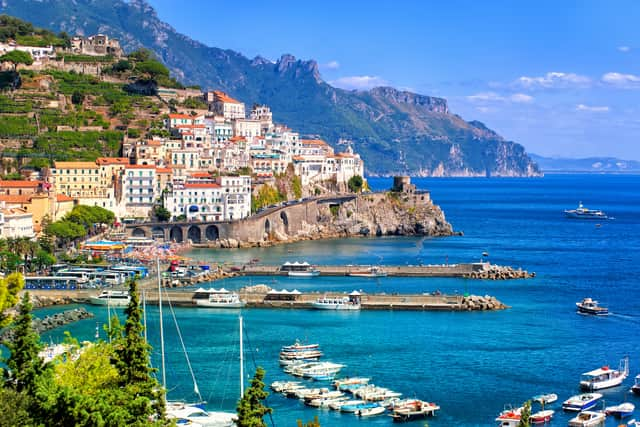Italy travel warning over ‘hidden’ tourist fees in holiday hotspots, including Rome, Milan and Florence
and live on Freeview channel 276
British travellers with holidays booked to Italy face paying additional costs on arrival due to tourist taxes.
The small fee is usually paid at your hotel and is typically not included in any pre-paid travel arrangements or package deals, so it can come as a surprise to some when it comes to settling the bill.
Advertisement
Hide AdAdvertisement
Hide AdThe ‘tourist tax’ requires holidaymakers to pay an extra charge for staying overnight in many of Italy’s major cities, including Rome, Milan and Florence.


The amount of tax that is charged varies from city to city and can be dependent on the star rating of the hotel you choose during your stay, with higher rated hotels typically charging more than holiday rentals. The tax is calculated based on the number of nights of your stay in the region as well as the standard of the holiday home or hotel.
In large cities, such as Rome, the tourist fees typically range from €3 to €7 per night depending on the type of room you stay in, while in some smaller cities the charge is more, according to Euronews.
Fees in Florence can range between €4 and €5 euros, between €3 and €5 in Milan and between €2 and €5 in Naples. Meanwhile, in Venice visitors can pay around €3 to €5 euros depending on where they stay, and an entry tax for tourists not staying in the city is also due to be introduced soon.
Advertisement
Hide AdAdvertisement
Hide AdThe money gathered from tourist taxes is seen as a way of raising funds for regions to reinvest this back into Italy’s tourism industry.
The UK Foreign, Commonwealth and Development Office (FCDO) states: “Many major cities in Italy impose a small tax on tourists. The tax is paid at your hotel and is usually not included in any pre-paid arrangements or package deal.
“The rate of tax varies from city to city and can depend on the star rating of the hotel. Hotels often ask for payment in cash. Make sure you get a receipt. For more information, check with the local tourist information office.”
Similar fees have also been introduced in several popular Spanish resorts, including in Catalonia and the Balearic Islands. It means holidaymakers travelling to the sought-after holiday destinations of Barcelona, Mallorca and Ibiza, must pay up to €4.00 (£3.50) per night during their stay.
Advertisement
Hide AdAdvertisement
Hide AdIn the wider region of Catalonia, tourists must pay between €0.60 (£0.52) and €3.00 (£2.60) per night, with the amount varying according to the location and the type of accommodation.
Elsewhere, councils in the Valencia region of Spain were given the green light to roll out a charge of up to €2.00 (£1.75) per person per night in November last year, which is due to take effect from December 2023. The fees are expected to range from €0.50 (£0.43) to €2.00 (1.75) per night, but can vary depending on the type of accommodation that people stay in.
But it’s not just Europe where such charges apply, as similar tourist taxes have been implemented here in the UK. As of 1 April, anyone who stays in a city centre hotel or holiday apartment in Manchester must pay £1 per night, per room, as part of a new scheme. The City Visitor Charge aims to raise £3 million per year and coms ahead of significant expansion of the hotel and holiday let sector in the city.
It is expected that almost 6,000 hotel rooms will be added to Manchester in the coming years, which will result in an extra one million overnight stays. The money raised from the tax will then be used to help fund the new Manchester Accommodation Business Improvement District (ABID).
Advertisement
Hide AdAdvertisement
Hide AdAdditionally, the Welsh government has also announced plans to charge a visitor levy for tourists who stay overnight. Tourists will pay a small fee if they are staying overnight in hotels, Airbnbs or bed and breakfasts, similar to charges already in place in more than 40 destinations, including Greece, France, Amsterdam and California.
Comment Guidelines
National World encourages reader discussion on our stories. User feedback, insights and back-and-forth exchanges add a rich layer of context to reporting. Please review our Community Guidelines before commenting.
